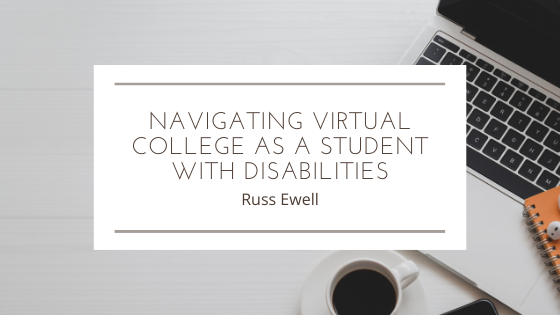Virtual College for Disabled Learners: A Need for Advocacy
Virtual education has quickly become a part of the “new normal” as many colleges and universities in the United States have made the tough decision to forego face-to-face classes this semester. Many students have been impacted by the decision to hold classes in an online environment. However, perhaps the most negatively affected group consists of students who have disabilities.
Though disabilities are commonly accommodated on campus, it can be difficult to ensure that those students’ needs are being met while they are at home. Now, more than ever, it is important that students with disabilities advocate for themselves. While student accessibility offices are legally and morally responsible for ensuring that all students have a fair opportunity to learn, students share in that responsibility and are expected to be proactive in order to obtain the appropriate accommodations.
The education of students with disabilities is often handled on a case-by-case basis. Every individual is unique so the educational plans must differ so that everyone’s personal accommodations are suited for their needs. While some students require only minimal adjustments to succeed, others may require special tools that will help them to complete course objectives. Although the virtual classroom may not come with the special learning technologies that are often available in college labs, the student accessibility office should still be notified of any difficulty.
The institution may have to make the appropriate technology available in the students’ home, or the instructors may have to create lessons with alternate methods of delivery. By advocating for themselves, students with disabilities can ensure that they are able to learn in the ways that are most effective for them despite the lack of face-to-face contact with professors and peers.
Though virtual college may seem like a challenging setback for students with disabilities, it doesn’t have to be. With the proper communication to university faculty and staff, these students have a chance to perform just as well virtually as they do in the live classroom. In order for students with disabilities to do well, institutional personnel must work with them and not only support but ensure that those who have disabilities are advocating for themselves because they truly do need assistance. Now is the time to pull together and show young people that we do not define them by their ability, but rather support them so that we can provide everyone with the same opportunities to succeed and begin their careers.
